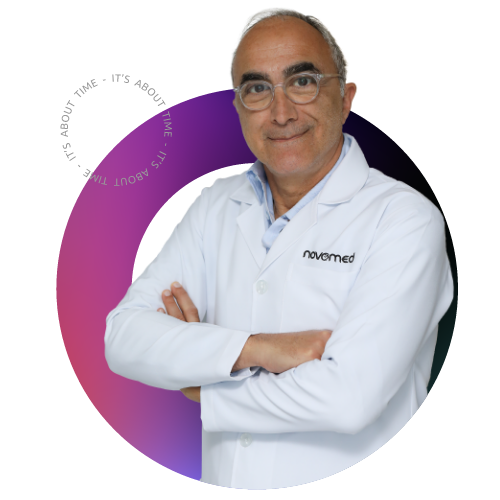Overview
Upper endoscopy, also known as esophagogastroduodenoscopy (EGD), is a procedure used to examine the upper digestive tract using a thin, flexible tube called an endoscope. The EGD procedure helps your doctor assess the esophagus, stomach, and duodenum, the first part of the small intestine.
The endoscope is attached to a tiny camera and light source at its tip, allowing your physician to observe, diagnose, and occasionally treat the upper gastrointestinal (GI) tract.
Why would I need an upper endoscopy?
Your physician may recommend this procedure for a variety of reasons, including:
- Determining the cause of bleeding from the top parts of the digestive tract.
- Diagnosing abdominal pain, heartburn, nausea, vomiting, and swallowing disorders.
- Identifying inflammation, ulcers, tumors, and other abnormal growths in the upper digestive tract. Endoscopy procedures are considered more accurate than X-rays, making it easier for doctors to zero in on these concerns.
- Collecting a tissue sample to determine whether the sampled tissue is benign or cancerous. While a biopsy is typically used to detect cancer, it may also diagnose Helicobacter pylori or the bacteria that causes ulcers.
- Performing a cytology test to examine cells and body fluids.
How to prepare for an upper endoscopy?
It’s recommended to have an empty stomach for the procedure, so you shouldn’t consume food or drinks for at least 8 hours before your endoscopy.
Your doctor will also provide you with specific dietary guidelines in the days leading up to your endoscopy; you may be advised to drink only clear liquids for 24 or 48 hours. To ensure that the doctor has a clear view of your upper gastrointestinal tract, you must follow all preparatory instructions thoroughly.
Ensure that your healthcare practitioner is aware of any medications you are currently taking, including vitamins, herbs, supplements, and any allergies. You may be advised to stop blood-thinning medications or other prescriptions for several days before the test. Since a sedative is used to help you feel more at ease during the examination, you will probably need to arrange transportation home afterward.
What to expect during the upper endoscopy test?
The doctor will ask you to lie on the examination table. Next, a mouth guard will be inserted in your mouth to protect your teeth from the endoscope. If you are given a sedative through an intravenous (IV) line at this time, you will begin to feel sleepy and will likely remain asleep during the process, which typically lasts between 10 and 20 minutes.
After the anesthetic is in effect, your physician will navigate the flexible gastroscope, which is roughly around the thickness of a finger, through the esophagus, the stomach, and the duodenum. The endoscope tube is equipped with a light and camera that transmits images to a screen, enabling the physician to examine the tissue of your digestive tract.
Any necessary extra treatments, such as removing a foreign object, performing a biopsy, or widening a narrow esophagus area, will be performed during this time. These procedures do not cause pain. The most notable discomfort you may experience during or after the procedure is typically bloating caused by air pumped into the GI tract to enlarge regions for better vision or tube passage. Once the procedure is finished, the tube will be removed, and you will be awakened from sedation.
What to expect during the upper endoscopy test?
Once you are fully awaken from sedation, you will be offered something light to eat and drink. You may still feel somewhat hazy and have trouble concentrating; This is a temporary sedative effect and will subside with time. However, the doctor will advise you to have someone drive you home. You will also be instructed to rest at home and avoid strenuous activities for the remainder of the day.
There should be no pain following an endoscopy. However, Your throat may feel sore from the insertion of the endoscope, and you may have temporary bloating from using carbon dioxide or air to improve the physician’s vision of the stomach. If your symptoms are more severe, you should inform your doctor.
Book your appointment at Novomed today!
At Novomed, our board-certified gastroenterologist uses the most advanced diagnostic techniques to provide the best treatment for chronic and acute gastroenterological conditions. Call us on the toll-free line 800 (NOVO) 6686 or fill out the booking form below to book an appointment for an upper endoscopy or other GI procedure.


























